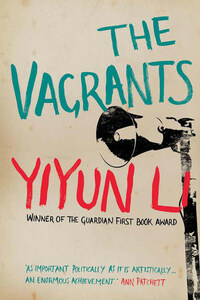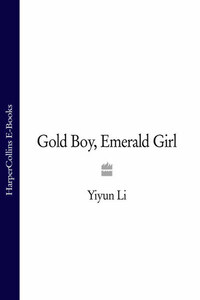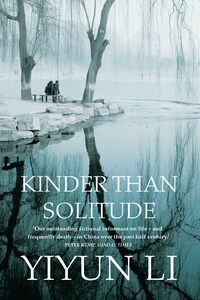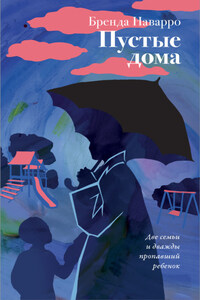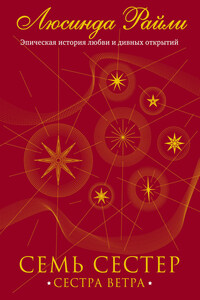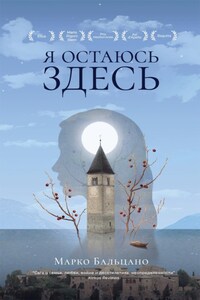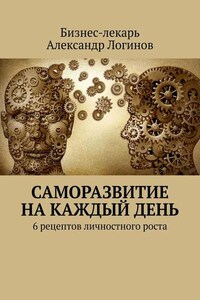The day started before sunrise, on March 21, 1979, when Teacher Gu woke up and found his wife sobbing quietly into her blanket. A day of equality it was, or so it had occurred to Teacher Gu many times when he had pondered the date, the spring equinox, and again the thought came to him: Their daughter’s life would end on this day, when neither the sun nor its shadow reigned. A day later the sun would come closer to her and to the others on this side of the world, imperceptible perhaps to dull human eyes at first, but birds and worms and trees and rivers would sense the change in the air, and they would make it their responsibility to manifest the changing of seasons. How many miles of river melting and how many trees of blossoms blooming would it take for the season to be called spring? But such naming must mean little to the rivers and flowers, when they repeat their rhythms with faithfulness and indifference. The date set for his daughter to die was as arbitrary as her crime, determined by the court, of being an unrepentant counterrevolutionary; only the unwise would look for significance in a random date. Teacher Gu willed his body to stay still and hoped his wife would soon realize that he was awake.
She continued to cry. After a moment, he got out of bed and turned on the only light in the bedroom, an aging 10-watt bulb. A red plastic clothesline ran from one end of the bedroom to the other; the laundry his wife had hung up the night before was damp and cold, and the clothesline sagged from the weight. The fire had died in the small stove in a corner of the room. Teacher Gu thought of adding coal to the stove himself, and then decided against it. His wife, on any other day, would be the one to revive the fire. He would leave the stove for her to tend.
From the clothesline he retrieved a handkerchief, white, with printed red Chinese characters—a slogan demanding absolute loyalty to the Communist Party from every citizen—and laid it on her pillow. “Everybody dies,” he said.
Mrs. Gu pressed the handkerchief to her eyes. Soon the wet stains expanded, turning the slogan crimson.
“Think of today as the day we pay everything off,” Teacher Gu said. “The whole debt.”
“What debt? What do we owe?” his wife demanded, and he winced at the unfamiliar shrillness in her voice. “What are we owed?”
He had no intention of arguing with her, nor had he answers to her questions. He quietly dressed and moved to the front room, leaving the bedroom door ajar.
The front room, which served as kitchen and dining room, as well as their daughter Shan’s bedroom before her arrest, was half the size of the bedroom and cluttered with decades of accumulations. A few jars, once used annually to make Shan’s favorite pickles, sat empty and dusty on top of one another in a corner. Next to the jars was a cardboard box in which Teacher Gu and Mrs. Gu kept their two hens, as much for companionship as for the few eggs they laid. Upon hearing Teacher Gu’s steps, the hens stirred, but he ignored them. He put on his old sheepskin coat, and before leaving the house, he tore a sheet bearing the date of the previous day off the calendar, a habit he had maintained for decades. Even in the unlit room, the date, March 21, 1979, and the small characters underneath, Spring Equinox, stood out. He tore the second sheet off too and squeezed the two thin squares of paper into a ball. He himself was breaking a ritual now, but there was no point in pretending that this was a day like any other.
Teacher Gu walked to the public outhouse at the end of the alley. On normal days his wife would trail behind him. They were a couple of habit, their morning routine unchanged for the past ten years. The alarm went off at six o’clock and they would get up at once. When they returned from the outhouse, they would take turns washing at the sink, she pumping the water out for both of them, neither speaking.
A few steps away from the house, Teacher Gu spotted a white sheet with a huge red check marked across it, pasted on the wall of the row houses, and he knew that it carried the message of his daughter’s death. Apart from the lone streetlamp at the far end of the alley and a few dim morning stars, it was dark. Teacher Gu walked closer, and saw that the characters in the announcement were written in the ancient Li-styled calligraphy, each stroke carrying extra weight, as if the writer had been used to such a task, spelling out someone’s imminent death with unhurried elegance. Teacher Gu imagined the name belonging to a stranger, whose sin was not of the mind, but a physical one. He could then, out of the habit of an intellectual, ignore the grimness of the crime—a rape, a murder, a robbery, or any misdeed against innocent souls—and appreciate the calligraphy for its aesthetic merit, but the name was none other than the one he had chosen for his daughter, Gu Shan.
